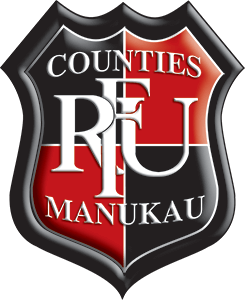News
Premier Players make Great Future Coaches
Why should our premier players look to coach?
Premier club players know rugby like the back of their hand. With years of experience under their names, they are well equipped to go on and become leaders, teachers, and advocates of our game.
They know the intricacies of play, they have strong relationships with our rugby community, and they have forged themselves a reputation over their seasons of play.
Having been in the game, these players are influential, and can use their understanding of the sport, their club, and their fans to elevate their team’s performance.
When a premier player takes up the role of coach, they are one step ahead of those who have only ever participated from a side-line capacity. As someone who has been there, done that, and put in the hard yards out on the paddock, our premier players have credibility and influence in what they say.
Our very own Boof has travelled the path from player to coach in all its challenges and all its glory, and what got Boof onto it was good coaches.
The Influence
I had a good coach in Mike Cron and other coaches at the Steelers level. I remember a moment around 2000, where Mike came out for a session with the Steelers. This was when he had just started with coaching set piece at the highest level. He shared with me my first dose of real technical coaching in one hit; I learnt a lot in one session about coaching and was left inspired and hungry for more.
Something that stuck with me was when he told us that the best coach here is the guy next to you, your fellow player. He said “Anything you’ve learnt here, take it to your club, teach your club mates, and teach your opposition as well. If your mate and your opposition get better, then you also must get better”.
I took Mike’s ideas on board and began to teach my mates and my opposition. It built the foundation of my belief that young players should be teaching each other. When you watch your mates grow, you grow together, which is a rewarding feeling. It’s also the one of the first opportunities you can grab to develop your skills as a future leader and coach.
That was the cool thing about playing at premier level, the coaches allowed to me to teach and coach while playing. This was also a valuable lesson in my own coaching, as it taught me that the coach does not need all answers, and he or she should use all that is around them. And although I loved the game so much, you can only play so long as your body allows. When you can’t play at the level you want to anymore, going into coaching is a natural progression to stay in the game.
The growth cycle
To be the best, in any area of sport and life, you are always having to learn and grow. I found that as a player if I was not learning I got bored - which shows the importance of continuing a cycle on growth. Coaching allows you to do just that. I believe that if you think you know everything, then you probably have reached the end!
With coach education, every time I present, I learn from those who are learning. For me, this is both empowering and rewarding and makes me want to present, educate, and coach every day. I have found that while I am learning and teaching, I keep coming back because I am hungry for it.
Modern day coaching
The courses available now, for instance level one and two foundation, go over key modules like the principles of play and creating a learning team environment. Most rugby people, without knowing will know the principles of play from watching and/or playing, but when people delve into them on course, and get to break them down, you start to see the lightbulb moments as people expand their knowledge and start to create connections between the information they are receiving and the results they will see on the field.
When I finished playing, I completed my Level 2 with Dameon Chaney, and gained another whole understanding of the game which I would never have accessed without the course.
Challenges for premier players
Honestly, I missed playing for a bit while coaching. When Tana gave me the job, I had to stop playing premier rugby. When you are playing, you get to cross the white line every week and butt heads with the opposition, finding out everything from who’s bigger, faster, better, harder, stronger, and of course smarter on any given Saturday. But when you’re on the side-line you have to figure out other ways to do that, and that’s very powerful once you understand it and experience it as a coach.
I think the main challenge for our players who are looking to take that leap into coaching, is how to get into it. A lot of players that finish playing are wary and fearful that they won’t know how to coach. So how do you do it? You just need to start. Take the leap and talk to the coaches and players in your clubs, ask for their advice. Many are scared to have a crack and come on a course, but I challenge you to be courageous because this is how we grow!
Also know that it’s good to make mistakes. The coach doesn’t need all the answers, and you can learn a lot from a few mistakes.
Find out more about the coaching pathway here









